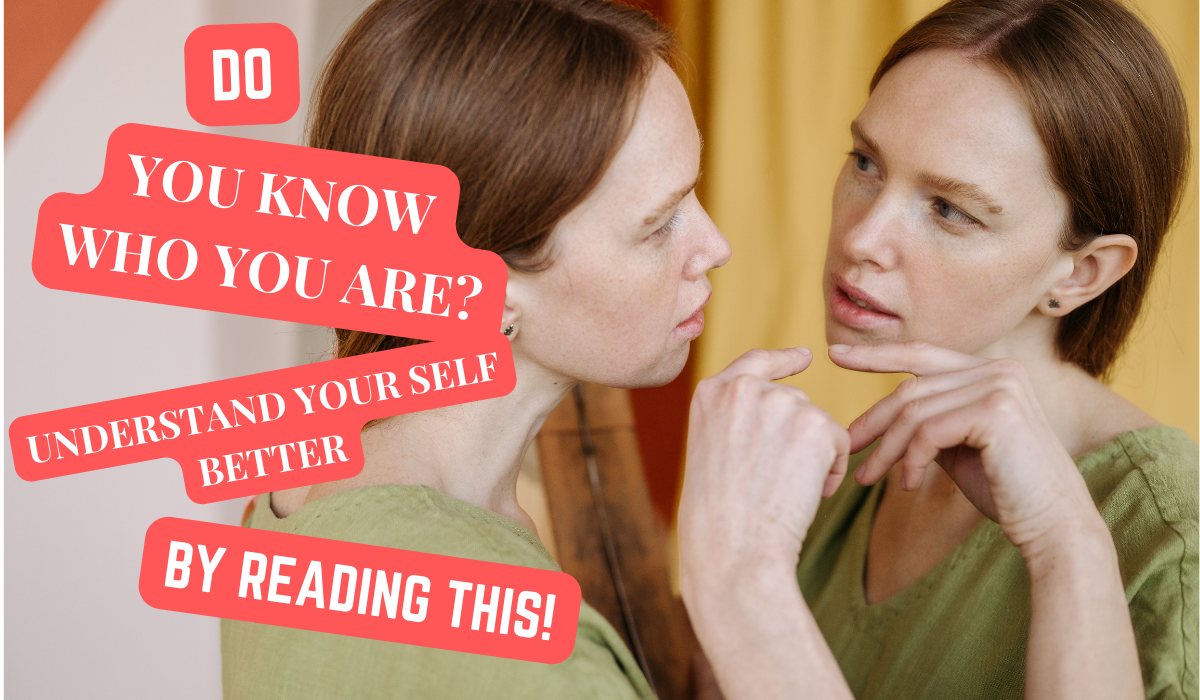
INTRODUCTION: WHAT ARE CORE BELIEFS?
Have you ever wondered why you react the way you do to certain situations or why you hold specific views so dearly? The answer lies in our core beliefs, the essence of how we see ourselves, others, and the world. In this article, we’ll explore core beliefs, why they matter, the impact of distorted beliefs on our life, and how we can work to identify and potentially change them for personal growth and better mental health.

WHAT ARE CORE BELIEFS AND WHY DO THEY MATTER.
Core beliefs are individuals’ fundamental perceptions about themselves, others, and the world. These deeply ingrained beliefs influence thoughts, behaviours, and emotions, often operating below the surface of our conscious awareness. They can be positive, such as “I am capable,” or negative, like “I am unworthy,” shaping our interactions and experiences from a young age. According to Medical News Today, “Core Beliefs are deeply held beliefs that inform how people see themselves and the world. They have a large influence on people’s perceptions and decision-making.”
Core beliefs matter significantly because they are the foundational principles that shape our perception of ourselves, others, and the world around us. These deeply held beliefs profoundly influence our thoughts, emotions, and behaviours. Understanding why core beliefs are important can help us navigate life more effectively and work towards personal growth and healthier mental states. Here are several reasons on what core beliefs are , and why they m atter?
1. CORE BELIEFS GUIDE OUR BEHAVIOUR
Core beliefs act as a compass for our actions and decisions. Positive core beliefs can lead us to choices that enhance our well-being and success, while negative core beliefs can limit our potential and lead to self-destructive patterns.
2. CORE BELIEFS INFLUENCE OUR EMOTIONAL WELL-BEING
Our core beliefs have a direct impact on our emotional health. Beliefs that are overly critical or negative can contribute to feelings of anxiety, depression, and low self-esteem. Conversely, positive core beliefs can foster resilience, confidence, and a sense of fulfilment.
3. CORE BELIEFS SHAPE OUR RELATIONSHIPS
Our core beliefs largely influence how we view ourselves and others. These beliefs can affect how we interact with people, the quality of our relationships, and our ability to form meaningful connections. For instance, a core belief that “people are trustworthy” can lead to more open and fulfilling relationships. In contrast, believing that “people are inherently selfish” might cause one to avoid intimacy and trust.
4. CORE BELIEFS AFFECT OUR PERCEPTION OF REALITY
Core beliefs can filter how we interpret experiences and information. They can cause us to have a biased view of events, leading to a distorted perception of reality. Recognising and challenging inaccurate core beliefs can help us see the world more clearly and react appropriately to various situations.
5. CORE BELIEFS DETERMINE OUR RESILIENCE
Our core beliefs are closely tied to coping with adversity and challenges. A belief in one’s resilience and ability to overcome obstacles can make a significant difference in facing life’s difficulties. Those with negative core beliefs about their capabilities might give up easily or avoid challenges altogether.
6. CORE BELIEFS IMPACT OUR GOALS AND ASPIRATIONS
Our beliefs about what we can achieve influence the goals we set for ourselves. Core beliefs supporting our growth and potential can motivate us to pursue ambitious goals, whereas limiting beliefs can hold us back from attempting to achieve our dreams.

HOW CAN YOU IDENTIFY CORE BELIEFS?
- Reflect on Your Reactions: Pay attention to situations where your emotions are intense or unexpected. These reactions often stem from core beliefs being activated.
- Journaling: Regularly write about your day, feelings, and thoughts. Over time, patterns may emerge that highlight underlying beliefs about yourself, others, and the world.
- Identify Patterns in Your Life: Look for recurring themes in your personal challenges, relationship issues, or life events. These can provide clues to your core beliefs.
- Feedback from Others: Sometimes, close friends, family members, or therapists can offer insights into beliefs you may not realise you’re projecting.
- Question Your “Always” and “Never” Statements: These absolutes can reveal what you believe to be unchangeably true about yourself and your life.

CHANGING THESE CORE BELIEFS FOR PERSONAL GROWTH AND BETTER MENTAL HEALTH
STEP 1 CHALLENGE AND TEST.
- Question the Belief: Ask yourself, “Is this belief always true?” “What evidence do I have that supports or contradicts this belief?” “Are there alternative explanations?”
- Behavioural Experiments: Design small experiments to test the validity of your core beliefs. For example, if you believe you’re bad at social interactions, try initiating conversations and noting the outcomes.
- Perspective Taking: Consider how others might view the same situation or how you would advise a friend in a similar position.
STEP 2. DEVELOP NEW BELIEFS.
- Create Balanced Beliefs: Develop more nuanced and balanced beliefs that acknowledge your strengths, potential, and limitations.
- Visualisation: Imagine yourself acting and reacting under the guidance of your new, healthier beliefs. How would you feel? What would you do differently?
STEP 3. REINFORCE
- Affirmations: Use positive affirmations that reinforce your new beliefs. Repeat these regularly to help cement them in your mind.
- Seek Evidence: Actively look for evidence that supports your new beliefs. Acknowledge and celebrate these findings to reinforce them.
- Mindfulness and Meditation: Practices like mindfulness and meditation can help you become more aware of automatic thoughts stemming from outdated core beliefs and gently guide your mind towards your new beliefs.
STEP 4. SUPPORT
- Therapy: Cognitive-behavioural therapy (CBT), acceptance and commitment therapy (ACT), and other forms of treatment can be incredibly effective in identifying and changing core beliefs with the guidance of a professional.
- Educate Yourself: Reading books, attending workshops, or taking courses on personal development and mental health can provide new insights and strategies for changing core beliefs.
WHAT HAPPENS WHEN OUR CORE BELIEFS BECOME DISTORTED?

When these core beliefs become distorted, they can lead to a skewed perception of reality, affecting our decision-making and interactions with others. Here are several ways distorted core beliefs can mislead us:
- NEGATIVE SELF-IMAGE
Distorted core beliefs often manifest as negative perceptions of oneself, such as “I am not good enough” or “I am unworthy.” These beliefs can lead to low self-esteem, anxiety, and depression, causing us to underestimate our abilities and worth and potentially miss out on opportunities for growth and success.
- FAULTY ASSUMPTIONS ABOUT OTHERS:
Distorted beliefs about others, such as “People are inherently selfish” or “No one can be trusted,” can lead to paranoia, social isolation, and difficulty forming healthy relationships. We might misinterpret others’ neutral or even positive actions through a lens of mistrust and fear, leading to misunderstandings and conflicts.
- CATASTROPHIC THINKING:
A distorted core belief might involve expecting the worst-case scenario in every situation, known as catastrophic thinking. This can paralyse us with fear over unlikely events, limiting our ability to take risks or try new things.
- OVERGENERALISATION:
This distortion involves making broad interpretations of a single event. For example, if someone experiences rejection once, they might develop the belief that they will always be rejected. This can prevent them from engaging in future social interactions or trying again after a failure.
- FILTERING:
Filtering is a distortion where we focus exclusively on negative and discount positive details. This can make the world seem more hostile or difficult than it is, leading to a persistent state of unhappiness and pessimism.

Understanding ” core beliefs” and recognising, when they become distorted, is crucial for navigating life more effectively. It allows us to challenge and adjust these beliefs, leading to a more accurate perception of ourselves and our environment. Doing so can improve our decision-making, enhance our relationships, and foster a healthier mental and emotional state. Identifying and correcting distorted core beliefs is vital to personal development and emotional well-being.
Changing core beliefs is a process that takes time, patience, and consistency. It’s normal to face resistance both internally and from your environment. Remember, the goal isn’t to become perfect but to develop a more balanced, compassionate, and realistic view of yourself and the world. This journey contributes to personal growth and enhances mental health and well-being. To learn more about Core Beliefs, please refer to my book, Travel Light: A Handbook for Mental Health.
WHAT ARE CORE BELIEFS? HOW CAN THEY MISLEAD US?
Identifying and correcting distorted core beliefs is crucial for personal growth and emotional well-being. Changing core beliefs requires time, patience, and consistency despite the internal and external resistance that may arise. The objective is not perfection but rather a more balanced, compassionate, and realistic perception of oneself and the world. This transformative journey fosters personal development, enhances mental health, and promotes well-being. For further information on Core Beliefs, please consult my book, Travel Light: A Handbook for Mental Health.
https://lindamcowan.com/how-to-stop-catastrophic-thinking



